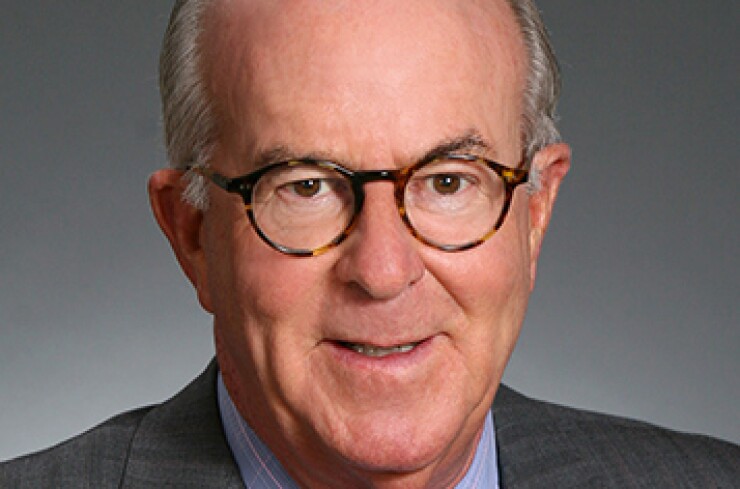WASHINGTON – A federal court judge has approved an agreement under which a lawyer will pay $95,000 to settle Securities and Exchange Commission charges that he engaged in pay-to-play practices to secure Ohio pension fund business.
Judge Algenon Marbley, who sits on the U.S. District Court for the Southern District of Ohio and oversaw the case involving Nelson Mullins Riley & Scarborough partner Robert Crowe, approved the settlement on Thursday. Crowe agreed to the settlement without admitting or denying the SEC’s allegations against him.

The settlement comes after Crowe failed to get the case against him dismissed in October 2016 and argued in an answer to the SEC’s complaint a month later that the commission’s allegations against him were not material to the purchase or sale of securities.
Under the settlement, Crowe will have to pay a $75,000 civil penalty as well as disgorge $16,000 of ill-gotten gains plus $3,840 of prejudgment interest. He will also be enjoined from committing securities fraud in the future.
The SEC alleged that Crowe participated in a plan by an official with Boston-based State Street Bank and Trust Co. and others to funnel money to an Ohio treasurer’s election campaign in exchange for subcustodian contracts for several Ohio pension funds.
Crowe, who was the alleged fundraising expert for the scheme that took place in 2010 and 2011, worked with Vincent DeBaggis, the head of State Street’s public funds group at the time, to arrange for at least $60,000 in political contributions to be made to the treasurer’s campaign during that period, the SEC claimed.
Crowe was charged with four counts of violating federal securities laws prohibiting fraud in transactions, two for direct violations and two for the aiding and abetting of DeBaggis’ violations by saying in documents associated with the custodial contracts that State Street had not provided any public official with anything of value.
The SEC charged that during 2010 and 2011, State Street worked with now-imprisoned former deputy treasurer Amer Ahmad and an immigration attorney with ties to Ahmad, Mohamed Noure Alo, to funnel portions of lobbying fees State Street paid to Alo to the deputy treasurer in exchange for the subcustodian business.
The SEC alleged that at one point that Crowe strategized with DeBaggis over how to meet a demand from Ahmad that DeBaggis come up with between $20,000 and $25,000 in a five-day stretch of time to improve their chances of getting the subcustodian business. Crowe and DeBaggis approached Alo, who had received $16,000 from State Street, and asked him to wire the $16,000 to Crowe so that Crowe could arrange the contributions to Ahmad, according to the SEC.
Crowe wrote an $11,300 check to the treasurer’s campaign, the maximum individual contribution limit, and bundled that with a $3,000 check from a Crowe-controlled Nelson Mullins political action committee and individual contributions from two Nelson Mullins employees that Crowe reimbursed, the SEC alleged.
The SEC said that Crowe, at a later date, created a “dummy invoice” to Alo for the $16,000 that Alo had wired to him. Crowe's invoice said the money was for mentoring services and, according to the SEC, it was postmarked July 12, 2010 but dated Feb. 15, 2010.
The pay-to-play scheme eventually came apart after the treasurer for whom Ahmad worked lost in the November 2011 election and the Department of Justice subpoenaed State Street’s documents related to the subcustodian bids, the SEC said. State Street terminated its agreements with Alo and Crowe in 2011 and fired DeBaggis in September 2014.
State Street and DeBaggis both agreed to settlements with the commission. State Street agreed to pay $12 million, which included an $8 million penalty and $4 million of ill-gotten gains that were to be disgorged. DeBaggis agreed to pay a $100,000 penalty and to disgorge roughly $174,000 in ill-gotten gains.





